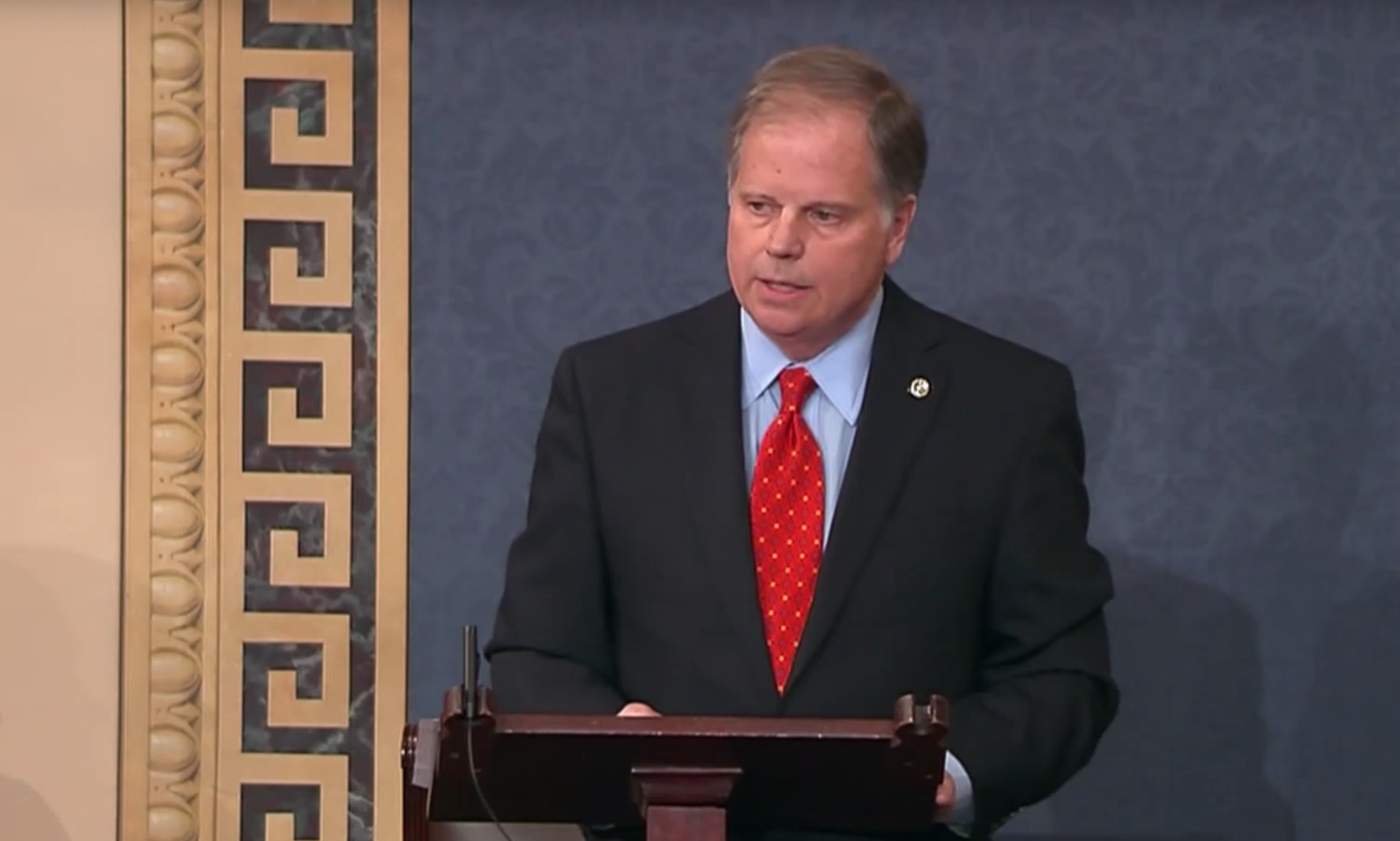Tuesday, U.S. Senator Doug Jones (D-Alabama) introduced legislation to increase federal investments in workforce development and training to help prepare workers for the jobs of the future. Sponsors say that the Investing in Tomorrow’s Workforce Act would ensure that American workers have the skills they need to successfully navigate the transition that will result from an increase in automation.
“Manufacturing jobs are the backbone of Alabama’s economy,” Jones said. “That’s why it’s so essential that we make sure workers have the resources and job training they need in order to prepare for the jobs of the future. This bill increases investments in American workers and provides resources for folks to learn new skills in jobs across all sectors of Alabama’s economy.”
While the Trump economy has been a boom for most Americans with record-low unemployment and rising wages, there are estimated that nearly 50 percent of jobs in the United States could be at risk due to automation, and Alabama is one of the top ten states where workers are vulnerable to automation.
Coosa, Conecuh, Greene, and Pickens counties are all among the top 25 counties in the U.S. that run the highest risk of losing jobs to automation over the next generation.
Roughly 40 percent of Alabama’s workforce falls in industry groups most at risk from automation, such as accommodation and food services, manufacturing, transportation, agriculture, retail, and mining.
Jones recently hosted a forum in Gadsden on the future of Goodyear, the tire manufacturer has long been the largest employer in Etowah County.
The Investing in Tomorrow’s Workforce Act would:
Invest in Workforce Training: The bill would create a grant program through the Department of Labor to support industry or sector partnerships in developing and carrying out training programs for workers who are, or are likely to become, dislocated because of advances in technology, including automation.
Expand Current Programs: The bill would increase funding for National Dislocated Worker Grants and amend the Workforce Innovation and Opportunity Act (WIOA) to ensure workers who are dislocated by automation are included in WIOA programs.
Study Workforce Training Practices: The bill would direct the GAO to conduct a study of the barriers to providing, and opportunities for improving, training for workers in industries that are most likely to be impacted by automation.
The Investing in Tomorrow’s Workforce Act is supported by the National Skills Coalition and the National Association of Workforce Boards.
The legislation is also cosponsored by U.S. Senators Dick Durbin (D-Ill.), Dianne Feinstein (D-Calif.) and Catherine Cortez Masto (D-Nev.) and a House companion bill was introduced by Congresswoman Cheri Bustos (IL-17).
“Preparing American workers to take on the jobs of tomorrow will strengthen the middle class and reaffirm our standing as a global economic leader,” Durbin said. “An investment in America’s workforce is an investment in our nation’s economy, and I’m proud to introduce this commonsense legislation with Senator Jones and Congresswoman Bustos.”
“Strengthening and growing our workforce has always been one of my top priorities,” Bustos said. “Today’s legislation will help meet the needs and support the success of the workers and job creators I’ve had the opportunity to job-shadow during what I call ‘Cheri on Shifts.’ We must continue to invest in the skills and resources our workers need to remain competitive and grow our local economy.”
Doug Jones won a special election in 2017 and faces re-election in 2020. The Alabama Republican Party has said that they are targeting Jones’ seat as a possible Republican pickup.




















































